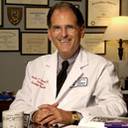Dr. Marcia Angell moved into the field of medical journalism from a career in pathology. She was the first woman to serve as editor-in-chief of the New England Journal of Medicine, and since leaving that post, has written frequently in professional journals and public press on a wide range of topics. Outspoken and frequently controversial, Dr. Angell joins host Dr. Martin Samuels to discuss her career.
ReachMD
Be part of the knowledge.™We’re glad to see you’re enjoying ReachMD…
but how about a more personalized experience?
Medical Journalism and Activism

You’re listening to ReachMD, the channel for medical professionals. Welcome to Inspired to Act, featuring international leaders in the field of medicine. Here is your host, founding chair, Department of Neurology, Brigham and Women’s Hospital and professor of neurology at Harvard Medical School, Dr. Martin A. Samuels.
Dr. Martin A. Samuels:
Can one doctor make a difference in the way the American medical system administers healthcare? Joining us to discuss social and political activism in medicine and healthcare is Senior Lecturer in the Department of Social Medicine at the Harvard Medical School, the first woman to serve as Editor-in-Chief of the New England Journal of Medicine, as well as a Board Certified pathologist, Dr. Marcia Angell.
Marcia, thanks very much for joining me today on the program.
Dr. Marcia Angell:
It’s a pleasure to be with you.
Dr. Martin A. Samuels:
A lot of my listeners, of course, know about you from your editorship of the New England Journal and a lot of the other important positions that you’ve taken in medicine, but I think a lot of them don’t know how you got there, and I wonder if I could hear a little bit about how you got interested in pathology and what took you into that field of medicine?
Dr. Marcia Angell:
Well, I think it was mainly a matter of mentors that I’ve met in medical school. I think that’s true for a lot of people but in my generation it was more true for women, I think, than for men even. When I was in medical school, the Chairman of the Department of Pathology was Stanley Robbins.
Dr. Martin A. Samuels:
Oh, yeah. What a wonderful, wonderful guy.
Dr. Marcia Angell:
Wonderful man. Right. The author of the top-selling, biggest textbook of pathology in the world. I was putting myself through medical school and I began to do that by helping him editing a little in the third edition that he was writing at that time. Later he and I created a book together that’s known as Baby Robbins now, but it was originally Robbins and Angell and that went through four additions and so it was primarily because of him that I decided to do a residency in pathology and get my union card, so to speak, in the fields of the book I had written.
Dr. Martin A. Samuels:
Did you do anatomical pathology…?
Dr. Marcia Angell:
Yes.
Dr. Martin A. Samuels:
…or clinical path? What did you do?
Dr. Marcia Angell:
No, I did anatomical.
Dr. Martin A. Samuels:
When did you begin to get interested in medical journalism?
Dr. Marcia Angell:
Well, another mentor, also at Boston University School of Medicine, was Arnold Relman and I did an elective with him when I was a third year medical student and became very interested in the kidney. He is a nephrologist. It would’ve been in my internship I wrote a paper with both Relman and Robbins that was published in the New England Journal of Medicine. This was back in 1968. It was Angell, Relman and Robbins about a bacterial chronic pyelonephritis.
Dr. Martin A. Samuels:
Huh.
Dr. Marcia Angell:
So he was also very, very important in my professional course. He became Editor-in-Chief of the New England Journal of Medicine in 1977 and I joined part-time the staff in 1979. The arrangement was I would work there part-time for that year and at the end of the year, I would decide whether I wanted to stay in pathology and continue as an author of the Robbins textbook, or whether I would burn my bridges in pathology and stay full-time at the New England Journal of Medicine.
So that was a real decision node in 1980 and I had no problem making that decision. By the end of that year, I was in love with the New England Journal of Medicine with medical journalism and all of the opportunities that that provided.
Dr. Martin A. Samuels:
Do you miss or did you miss doing the pathology?
Dr. Marcia Angell:
A little. I gave up my role in the book to Vinay Kumar at that time and he continues now to be doing both of the Robbins textbooks. I missed it a little and I did my residency in pathology. The problem with pathology is that I didn’t have live patients. I was looking either at dead patients or at pieces of patients.
I missed dealing with patients. I had done a couple of years of internal medicine before I did pathology and I really liked diagnosis. I liked the detective work and that was gone in the sense, so leaving pathology all together was not as big a loss. I had already felt that loss in leaving internal medicine.
Dr. Martin A. Samuels:
You were the first woman Editor-in-Chief of the New England Journal of Medicine. I think…
Dr. Marcia Angell:
And the only.
Dr. Martin A. Samuels:
…most of us and only to this day, and certainly most of us think of it as the most prestigious medical journal in the world, certainly one of the top two or three medical journals in the world. A pressurized job by any account, did you feel any special kind of pressure being the first woman there?
Dr. Marcia Angell:
No, I didn’t. I think that, that’s really a credit to my colleagues there. When I became Editor-in-Chief there were five, full-time deputy editors and six part-time, one day a week associate editors and every one of them was a man, every one of them was a man and yet I never felt any resentment. I felt nothing but support and respect from them. So maybe I should’ve felt more pressure but I really didn’t.
Dr. Martin A. Samuels:
If you’re just tuning in, you’re listening to Inspired to Act on ReachMD radio, a channel for medical professionals. I am your host Dr. Martin Samuels. Joining me today is Dr. Marcia Angell and we’re discussing the role of physician as a political activist. Well, there was a big healthcare bill passed, it barely passed. It was a heck of a process. Are you happy with it Marcia? What is your view of it?
Dr. Marcia Angell:
No, I’m not and I have discussed this at length with some of my closest friends, my husband, many of whom say, “Well, don’t make the perfect the enemy of the good. This is at least a step in the right direction,” and I guess my feeling is that it’s a step in the wrong direction. I would rather have seen it not pass and the problem is it does nothing to control costs. Costs, that’s the basic problem. I mean, if costs were no issue, then everybody could have all the healthcare they wanted. So clearly it’s can we provide healthcare at a sustainable cost and I don’t think that this does it. There is absolutely no cost control in it.
Dr. Martin A. Samuels:
Do you think it would’ve been better for it not to pass, which would’ve caused crisis of some sort, a worst crisis? Is that right?
Dr. Marcia Angell:
I don’t think it would’ve caused a worst crisis. I mean, my point is that this new bill, it leaves the private health insurance in the street in place as the linchpin of the system. It does nothing to control the prices of prescription drugs. So essentially what the President and the Democratic Party said is this is a terrible system and so let’s put more money into it. They have a dysfunctional system. They haven’t changed the system. They’ve just poured more money into the same system.
So by the law of mass effect, I think that prices will continue to go up and probably even more rapidly, and the insurance industry will continue its bad behavior despite the regulations that are supposed to go into effect gradually. I think it would be very hard to enforce those and anything that threatens their profits, they’ll simply raise the premiums. So I think what we’re going to get is cost inflation that’s even greater than we’ve had had.
Dr. Martin A. Samuels:
I had as one of my guests, Tom Lee, who I’m sure you know very well and he and Jim Mongan wrote this book, Chaos and Organization in Health Care and their view is that we need to go to a system that is more of a closed system like a National Kaiser or Cleveland Clinic or something of that kind. Is that how you see it?
Dr. Marcia Angell:
I agree with that. This continues this fragmented system in which all the pieces are trying to maximize their profits and revenues and dump patients who have a temerity, they actually get sick onto another payer. So, it’s not changed and what we need is the fundamental overhaul and you can imagine several ways this could happen.
I proposed having the Medicare age dropped decade by decade gradually. So initially you would just drop Medicare to the age of 55 and then after a while, maybe to 45, until everybody had Medicare for all. Now, Medicare would have to be changed in some ways. It’s delivered in profit-seeking delivery system too, and I think it would have to be delivered in a nonprofit system. But still, the first thing is to take care of the financing of it and I think Medicare for all would’ve been a simple way to do it and we already have Medicare as a most popular part of our system. Why not expand that instead of creating this Rube Goldberg apparatus.
Dr. Martin A. Samuels:
I’m going to get you back on here because I’d like to discuss this one at greater length, but I do want to ask you one other area of interest of yours and that’s the involvement of the pharmaceutical industry in medical education. In medicine in general, you’ve taken some very strong physicians about that. Are you feeling that the changes that have occurred, partly as a result of some of the things you said with tougher rules by hospitals and systems, do you think that’s getting at the main problem or not?
Dr. Marcia Angell:
Not yet. Largely because of pressure from Senator Grassley and others, I think there’s starting to be some nibbling away at the influence that drug companies now exert on the medical profession as a whole and academic medicine in particular. We’re starting to see a little pushback on that, but it’s still way too little. It seems to me that the medical schools and the teaching hospitals are somehow trying to come up with some way that they can look good but keep the money, and they’re not going to be able to do that. At some point, they’re going to have to say no to some of that good money that they’re getting from the drug companies.
Dr. Martin A. Samuels:
I was just talking to Steve Nissen at the Cleveland Clinic. He takes a very strong position similar to yours about this and doesn’t accept anything himself, of course, but he said that he thought it was critical that medicine continue to work with the industry, that it was important for the development of new drugs and devices and so on. What’s your view about that? Do you think that can be done and done in a clean way or not?
Dr. Marcia Angell:
I think it can. The only legitimate role for the drug companies is in doing basic research mainly on possible drugs and also funding the clinical trials that they have to do in order to get their drugs approved by the FDA. So, it’s not that they fund the clinical trials or that they’re involved in early research, but the terms of the relationship. I think that the funding of clinical trials should be at arms length, that the academic faculty who are doing the trials should have no other financial connections with the company that is sponsoring their work.
The researchers should have responsibility for designing the trial. They should have the data, they should do the interpretation, write the papers. The awarding of grants from the drug companies should be at arms length and it was that way up until about 20 or 30 years ago. I think we have to go back to that. Now the companies exert enormous control. So I think that there can be some interaction but the terms, they have to be very, very carefully done.
Dr. Martin A. Samuels:
Well, I want to thank my guest Senior Lecturer, Social Medicine at Harvard Medical School, Dr. Marcia Angell. Marcia, thanks so much for spending time with us this week on Inspired to Act.
Dr. Marcia Angell:
I enjoyed it Marty.
You have been listening to Inspired to Act on ReachMD, the channel for medical professionals, featuring international leaders in the field of medicine, hosted by Dr. Martin A. Samuels.
Recommended
Overview
Dr. Marcia Angell moved into the field of medical journalism from a career in pathology. She was the first woman to serve as editor-in-chief of the New England Journal of Medicine, and since leaving that post, has written frequently in professional journals and public press on a wide range of topics. Outspoken and frequently controversial, Dr. Angell joins host Dr. Martin Samuels to discuss her career.


Facebook Comments